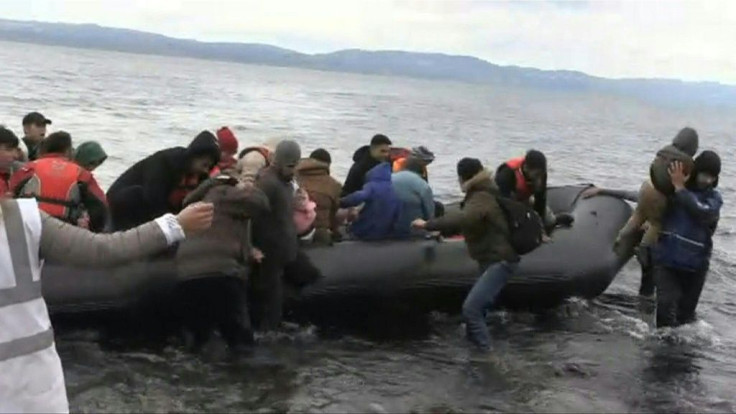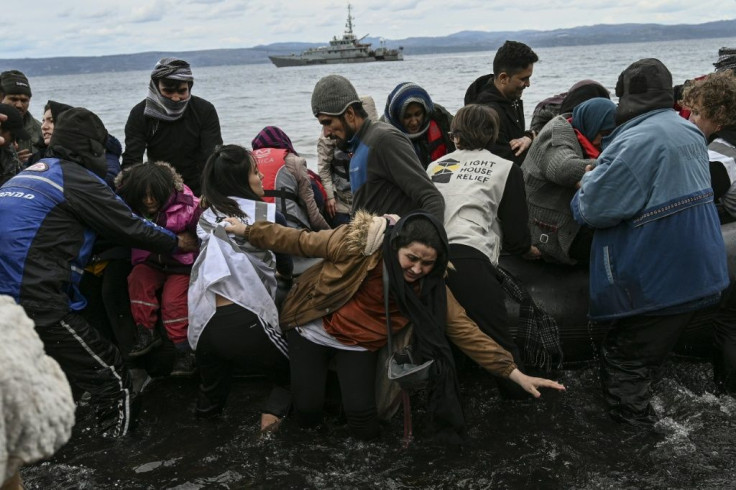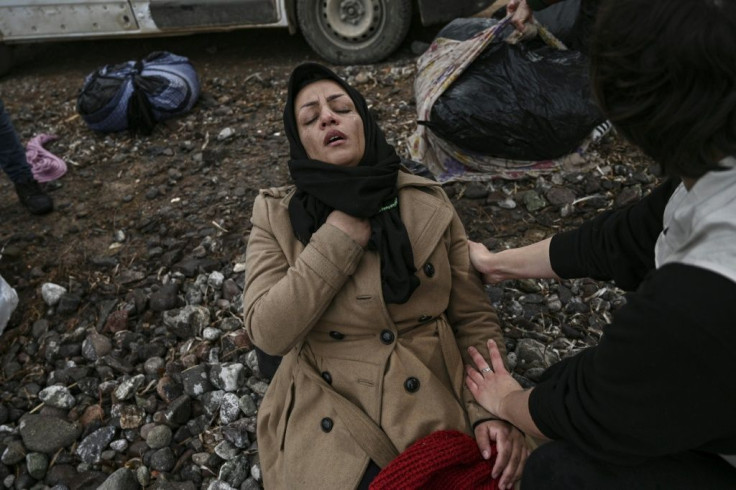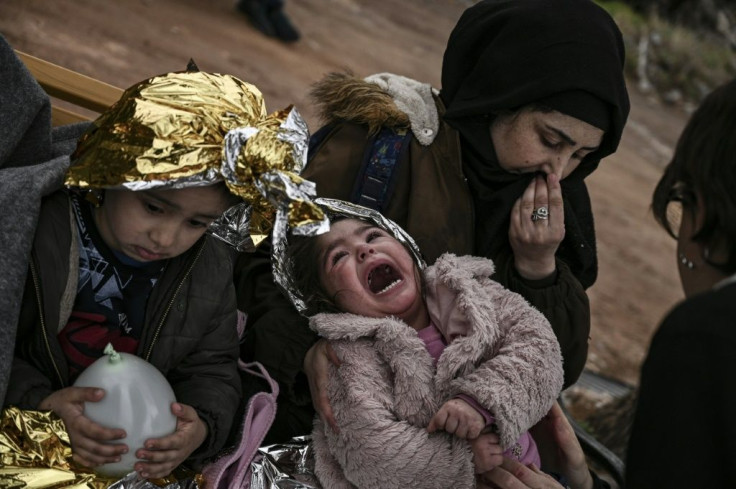Greece Blocks Migrants On Border With Turkey

Greece blocked hundreds of migrants trying to enter the country on Friday after Turkey said it would open the gates for refugees from Syria to enter the European Union.
Greek Prime Minister Kyriakos Mitsotakis said that "illegal" entries would not be tolerated while the EU said it had received "reassurances" from Ankara.
Turkey's threat came hours after a Syrian strike on Thursday killed 33 of its soldiers in Idlib and was aimed at forcing European governments to do more to support it in its fight against the regime.
Around 3.6 million Syrian refugees are currently being held in Turkey under a 2016 deal Ankara struck with the European Union which dramatically cut the flow of migrants crossing the Aegean Sea to Greece.
After speaking to Turkey's foreign minister by telephone on Friday, EU foreign policy high representative Josep Borrell said Mevlut Cavusoglu had assured him Ankara stood by the 2016 deal.
"Received reassurances that Turkey remains committed to Joint EU-Turkey Statement," Borrell tweeted.
His spokesman Peter Stano said earlier that Turkish officials had not formally notified Brussels of any change to the deal.

Shortly after Borrell's statement, however, Greek border guards at Kastanies, in the northeastern Evros region, prevented hundreds of migrants from entering the country from Turkey.
"Significant numbers of migrants and refugees have gathered in large groups at the Greek-Turkish land border and have attempted to enter the country illegally," Prime Minister Mitsotakis said in a tweet.
"I want to be clear: no illegal entries into Greece will be tolerated. We are increasing our border security."
Around 300 asylum-seekers had arrived in the area, seemingly from Edirne in Turkey, army and police sources told AFP.

"We have heard they would give the authorisations and we can all go," said Sebghatullah Amani, a 20-year-old Afghan.
"So today we are all leaving and going to Germany," he told AFP at a bus station in Istanbul.
As well as trying to get to Europe via land, refugees were also attempting to reach Greece by sea.
The private Turkish news agency DHA said asylum-seekers were also assembling on Turkey's western coast of Ayvacik to try to go to the Greek island of Lesbos by boat.
According to AFP reporters on Lesbos, two boats arrived with around 70 people on board, with many of them scrambling ashore carrying children on their backs.

In Bulgaria, Prime Minister Boyko Borisov said police had been sent "to our borders (with Turkey) early in the morning. It is worrying that the Turkish border guards have withdrawn."
Bulgarian Defence Minister Krasimir Karakachanov said Friday that two groups of 30 people each tried to enter Bulgaria earlier in the day but were stopped in Turkey before crossing the border. He said 1,000 troops stood ready to reinforce the border if needed.
Earlier, a senior Turkish official said that Ankara would no longer close its border gates to refugees wanting to go to Europe, shortly after 33 Turkish soldiers were killed in an air strike in Idlib, northern Syria.
Greece and its EU partners fear another influx of refugees from Syria after more than one million made their way there in 2015 before an EU-Turkey accord was reached on controlling the numbers.
Greece is already struggling to accommodate thousands of asylum-seekers stranded in the country for the past five years, especially on the islands, where migrant camps are stretched far beyond capacity.
More than 38,000 migrants are crowded into camps on the islands of Lesbos, Chios, Samos, Leros and Kos, several times over the official capacity of just 6,200.
Camps on the Greek mainland are also full.
Only a few hundred migrants have been sent back to Turkey, and just a handful of European states have offered to take in refugees from Greece after EU borders were shut in 2016.
The conservative government of Prime Minister Kyriakos Mitsotakis, which came to power in July, has failed to persuade Greek island authorities to accept the creation of new camp facilities.
Earlier this week, the government tried to push forward with its camp plans by sending riot police and construction machinery to Lesbos and Chios.
Human rights group Amnesty International condemned the day's manoeuvring.
"What we are seeing now at Turkey's land and sea borders with the EU is that people seeking asylum are once again being used as bargaining chips in a deadly political game, a predictable consequence of the EU-Turkey deal," said Deputy Research Director, Massimo Moratti in a statement.
"EU member states need to do far more to share responsibility for asylum seekers arriving in Turkey."
© Copyright AFP 2024. All rights reserved.





















